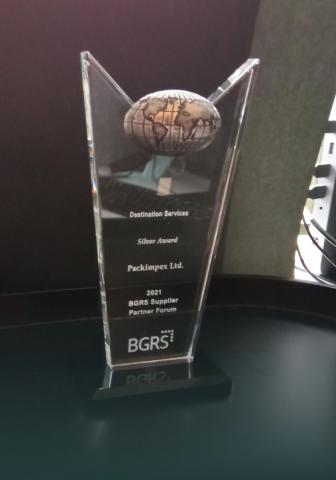What does relocation compliance mean?
Keep international business projects moving forward by putting compliance requirements at the top of your priority list. This is what you need to know.
Compliance and legal obligations in relocations abroad refer to the legal requirements for the employee and their assignment in a host country. Requirements can include filing applications in the right place at the right time, securing the appropriate visa, meeting tax requirements, following privacy laws and securing mandatory insurance coverage.
In Packimpex’s home market of Switzerland, as an example, the number of workplace compliance inspections currently sits at around 35,000 inspections per year. Authorities check that employees from abroad have been registered in accordance with immigration law and that minimum salary requirements have been met. Fines for minor immigration non-compliance such as late registration with the authorities start at CHF 300 (around €300) and rise quickly to between CHF 2k and 5k (€2k-5k).
It doesn’t stop there – serious compliance lapses, for example not paying minimum salary for extended periods, can carry fines of between CHF 10k and 30k (€10k-30k). Fines in other European countries are similarly severe or even higher.
This is underlined by an independent study conducted by the Ponemon Institute, which notes that the “cost of non-compliance can be more expensive than investing in compliance activities”. Disruption in business, fees and penalties, audits, halted production – these can all cost more than teaching HR professionals about compliance requirements and putting a solid process in place.
For large corporations and even SMEs, confirming a business deal that requires sending employees abroad means that multiple branches of the company need to coordinate. In many cases, the compliance and legal aspects of international relocations are forgotten until unavoidable issues come up. These issues can prove to be huge hurdles that HR professionals must overcome in order to avoid fines and get the business project back on track.
Having a reliable compliance process in place can speed up turnaround time after a project or deal is confirmed. For that, you need a clear understanding of all the compliance and legal requirements from pre-departure to post-arrival.
“Compliance is the key word right now, and it is essential that you have a robust approach towards handling it”, says Robert Baldwin, VP Key Account Management.
Knowing how to hire, pay and retain employees while meeting compliance and legal relocation requirements plays an important role in the success of your international projects and your reputation as an employer. This is a comprehensive list of what you need to consider before, during and after an employee relocates to ensure smooth sailing for everyone involved.
As you begin working through your checklist, it’s important to be aware of the host country’s rules and regulations. What is different from employment in the home country? This knowledge will give you a solid foundation as you proceed through the compliance and legal obligations.
Immigration & registration
This is likely the most complex aspect when it comes to relocation compliance because requirements differ on a case-by-case basis. Compliance involves anything related to immigration law if employees are relocating from abroad – eligibility, visas, residency permits, first issue and renewals.
 First you need to know if an employee has the legal right to work in the new location.
First you need to know if an employee has the legal right to work in the new location. Then you will need to help the transferee apply for the work permit and/or visa that is required by the host country.
Then you will need to help the transferee apply for the work permit and/or visa that is required by the host country. Upon arrival, they will likely have to register with the local government. This process may vary from country to country so it’s best to be aware of these rules before the transferee leaves for their assignment.
Upon arrival, they will likely have to register with the local government. This process may vary from country to country so it’s best to be aware of these rules before the transferee leaves for their assignment.
Insurance
 Find out if the transferee will need accident insurance (occupational and private) and other insurance coverages. What is required by the host country and what is an added benefit for the employee?
Find out if the transferee will need accident insurance (occupational and private) and other insurance coverages. What is required by the host country and what is an added benefit for the employee?
Financials
 First, you will need to help your transferee open a bank account before they depart. To do so, you will require specific documentation from the transferee.
First, you will need to help your transferee open a bank account before they depart. To do so, you will require specific documentation from the transferee. The bank account is essential for salary payments. Social security contributions are also an important point to consider. Are these contributions valid in both the home and host countries, or just where the transferee will be working? Be sure to clarify this before your employee packs their bags.
The bank account is essential for salary payments. Social security contributions are also an important point to consider. Are these contributions valid in both the home and host countries, or just where the transferee will be working? Be sure to clarify this before your employee packs their bags. The most obvious compliance obligation related to financials is tax compliance. Managing expectations from the beginning will help you avoid unexpected costs for your company and the transferee down the road.
The most obvious compliance obligation related to financials is tax compliance. Managing expectations from the beginning will help you avoid unexpected costs for your company and the transferee down the road.
Housing & other destination services
 Proper accommodation is not only a necessity for the employee’s experience but also for entrance into the country. Immigration authorities will want to know where the transferee will be staying. Having their home confirmed before they leave is a great way to ensure compliance.
Proper accommodation is not only a necessity for the employee’s experience but also for entrance into the country. Immigration authorities will want to know where the transferee will be staying. Having their home confirmed before they leave is a great way to ensure compliance. If children are relocating with your transferee, it’s likely they will need to already be admitted to a school or have signed up for the upcoming school year. Education is often a very personal choice for families. Provide your transferee with information on education options in the host country. Be sure they choose their kids’ school after finding accommodation but before they depart.
If children are relocating with your transferee, it’s likely they will need to already be admitted to a school or have signed up for the upcoming school year. Education is often a very personal choice for families. Provide your transferee with information on education options in the host country. Be sure they choose their kids’ school after finding accommodation but before they depart.At this stage, you and your transferees have ensured all compliance and legal obligations are met before they start their assignment abroad. Once they arrive and their international employment has begun, there are a few other compliance elements that need to be managed. This includes housing and other destination services such as:
 Signed property lease: your employees should have it and their name should be on the letter box. Signing the property lease is a decisive moment in your employees’ assignment and riddled with compliance requirements. Their rights and obligations should be clearly laid out to them well in advance to avoid breech of compliance and maximise chances of receiving their rental deposit back.
Signed property lease: your employees should have it and their name should be on the letter box. Signing the property lease is a decisive moment in your employees’ assignment and riddled with compliance requirements. Their rights and obligations should be clearly laid out to them well in advance to avoid breech of compliance and maximise chances of receiving their rental deposit back. Telephone and internet connections
Telephone and internet connections Liability and auto insurance, and any other required insurance policies that were not handled during the pre-arrival stage
Liability and auto insurance, and any other required insurance policies that were not handled during the pre-arrival stageLong-term relocation compliance differs from the relocation compliance during the assignment because it requires a clear view of what’s to come. Knowing about deadlines, key dates, and requirements for business travel ahead of time will make things easier and smoother for both you and your transferee. This is what you need to keep in mind during a transferee’s assignment:
 Key dates related to permits
Key dates related to permits When will their permit or work visa expire? What do you need to do to renew the permit or visa in advance to ensure the transferee isn’t working the host country illegally? It is essential to have a solid long-term perspective here and knowledge of immigration requirements.
When will their permit or work visa expire? What do you need to do to renew the permit or visa in advance to ensure the transferee isn’t working the host country illegally? It is essential to have a solid long-term perspective here and knowledge of immigration requirements. Business travel requirements
Business travel requirements What is allowed or not allowed when it comes to business travel to and from the host country. Keep in mind that your transferee may have to travel back and forth between the home country and host country, or from the host country to other countries for short visits or meetings. Is this business travel permitted with their visa? Will they have complications when re-entering? Does this impact any tax compliance?
What is allowed or not allowed when it comes to business travel to and from the host country. Keep in mind that your transferee may have to travel back and forth between the home country and host country, or from the host country to other countries for short visits or meetings. Is this business travel permitted with their visa? Will they have complications when re-entering? Does this impact any tax compliance?Mastering compliance and legal in relocation scenarios requires a wide range of expert knowledge that needs to apply at different points in time, not just all at once. If you’ve outsourced the relocation of your employees for long- or short-term assignments, this means you’ll be working closely with your relocation provider to stay on top of all legal and compliance requirements needed before, during and after an assignment is finished.
Our Packimpex teams throughout Europe are constantly checking the latest requirements regarding immigration, insurance, employment contracts, salary payments and housing or lease requirements.
When it comes to compliance, we lead by example. Packimpex is a member of EURA (the European Relocation Association), SARA (the Swiss Relocation Association) as well as ABRA (the Belgian Relocation Association). Our membership of these highly respected associations requires us to adhere to industry standards, and are proof that the services we provide meet all the necessary compliance requirements and standards in the relocation industry.
Going even further, our IS0 270001 certification is related to security systems, data management and data handling. This management process certification means that the processes are the same in every Packimpex office in all the countries where we are active. Our customers and partners can rest assured that their personal information remains secure. Packimpex is amongst the first European relocation companies to receive this certification.
Do you have questions about a certain legal requirement, or do you need expert-level support for the end-to-end management of your transferees’ relocations?
Our legal and compliance experts are standing by to help you.




